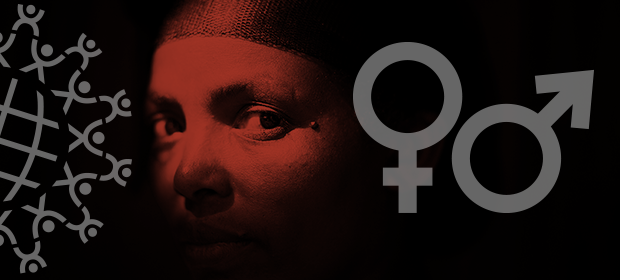Where We Work
See our interactive map


In Madagascar, 30% of women report that they experienced at least one type of violence in the last year, such as physical abuse at the hands of a spouse or intimate partner.
Of these, 8% experienced two types of violence, such as both psychological and sexual abuse. And half of Malagasy women say there are legitimate reasons for a husband to beat his wife.
When almost a third of a population experiences such a health threat, we can consider it an epidemic.
But in Madagascar and around the world, we as a global community do not coordinate swift responses or create urgent plans to eliminate gender-based violence the way we do for other large-scale epidemics. Instead there is silence.
One of the few options available to women is the right of misitaka, which means to distance oneself.
That silence is rooted in a taboo against speaking out about violence, as well as in practical disincentives.
In Madagascar, one of the few options available to women trying to escape abuse is the right of misitaka, which means to distance oneself. In other words, a woman can leave her home. But this is a very destabilizing option, particularly for those with children. And where is a survivor to go? She may return to the home of her parents, who will likely pressure her to return to her husband. If a married woman is willing to talk about the violence she’s suffering at home, she may also go to the head of the fokontany, or group of villages, who can negotiate on her behalf—but often without results. Or she could go to the police or to court, but she’ll face financial barriers such as the 6,000 Ariary (under US$2) fee for the medical certificate she would need to sue her husband. Many women—especially survivors who depend economically on their husbands—simply cannot afford such an option. Under Malagasy law, perpetrators of domestic violence can be sentenced to up to 10 years in jail or be charged a fine of one million Ariary (about $312). These laws are rarely implemented, largely because women rarely press charges.
But Madagascar is making some progress. An emergency shelter is set to open in Antananarivo soon, where it will provide 48-hour stays for survivors of abuse. It’s a very short-term solution, but it’s a sign that more options are slowly becoming available to Malagasy women.
Health sectors must adopt a human rights-based approach to gender-based violence.
And as those options grow, survivors of gender-based violence in Madagascar need information about and access to the social and legal protections and health services available to them—not only to protect themselves, but to end the culture of silence and impunity around abuse. That’s why IntraHealth International, through the PSI-led Madagascar Integrated Social Marketing Project, is working to provide this information and access in Madagascar.
To do this, we’ve partnered with the Ministries of Health, Population, Justice, Communication, and Youth and Leisure, as well as with the Enda OI network—which offers psychosocial, legal, and economic support—and Allo Fanentanana, a free hotline that offers legal education, counseling, and referral and safety planning.
Together, we have:
But we must do more.
Health sectors must adopt a human rights-based approach to gender-based violence that not only promotes and protects the survivor’s rights to live without violence, but challenges violence and discrimination against women in the community. Health care organizations must engage their health workers in new ways of thinking and acting, individually and in coalitions.
And community health workers—who know the families and communities—need to be part of the solution.
Health workers must know how to provide care without treating the violence as merely a clinical problem.
A health worker may be the first or only point of contact outside the home for a woman who is experiencing violence. Even where legal systems are weak and referral services are not available, by asking about violence and assuring a confidential response, health workers can reassure women that they are not to blame, mitigate isolation, raise women’s awareness about the health risks of violence for themselves and their children, and help women and girls plan for their safety and get help before violence escalates.
And health workers must know how to provide care without treating the violence as merely a clinical problem. They have the power to assuage victims’ fears of being stigmatized—or to reinforce those fears, continuing a destructive convention of silence.
Health workers can send women the message that the health care system knows that violence is a problem, that violence is not part of a healthy life, and that talking about it is acceptable and normal.
Primary prevention—stopping violence before it begins—is as important as treatment and support. Health organizations should seek opportunities beyond the clinic walls to work with community groups and coalitions to raise awareness about violence against women and children, help shelter survivors of violence, challenge the social and gender norms driving the violence, and strengthen community activism to prevent it. Health workers should engage women and girls in meaningful ways in processes of empowerment.
By equipping health workers to effectively screen for and respond to the social roots of gender-based violence, we not only help women who are suffering today—we set the stage for meaningful health system engagement that can prevent violence in generations to come.
Get the latest updates from the blog and eNews




